Localized Approaches to Measuring Localization
Policy Brief
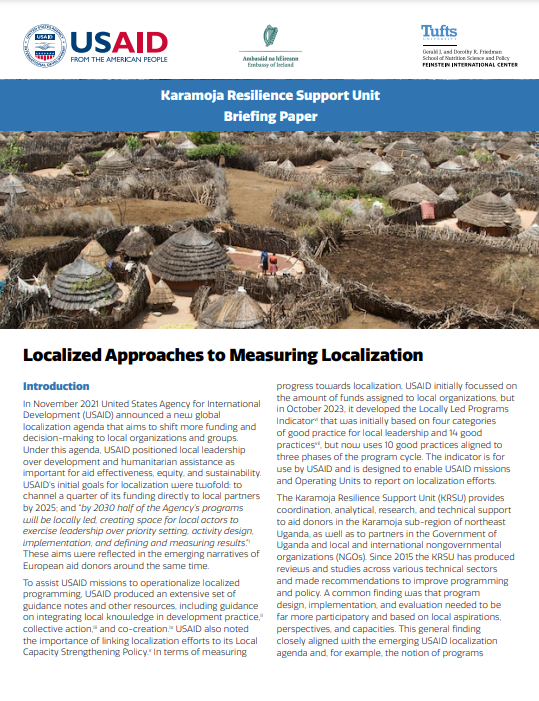
Localized Approaches to Measuring Localization
In November 2021 United States Agency for International Development (USAID) announced a new global localization agenda that aims to shift more funding and decision-making to local organizations and groups. Under this agenda, USAID positioned local leadership over development and humanitarian assistance as important for aid effectiveness, equity, and sustainability.
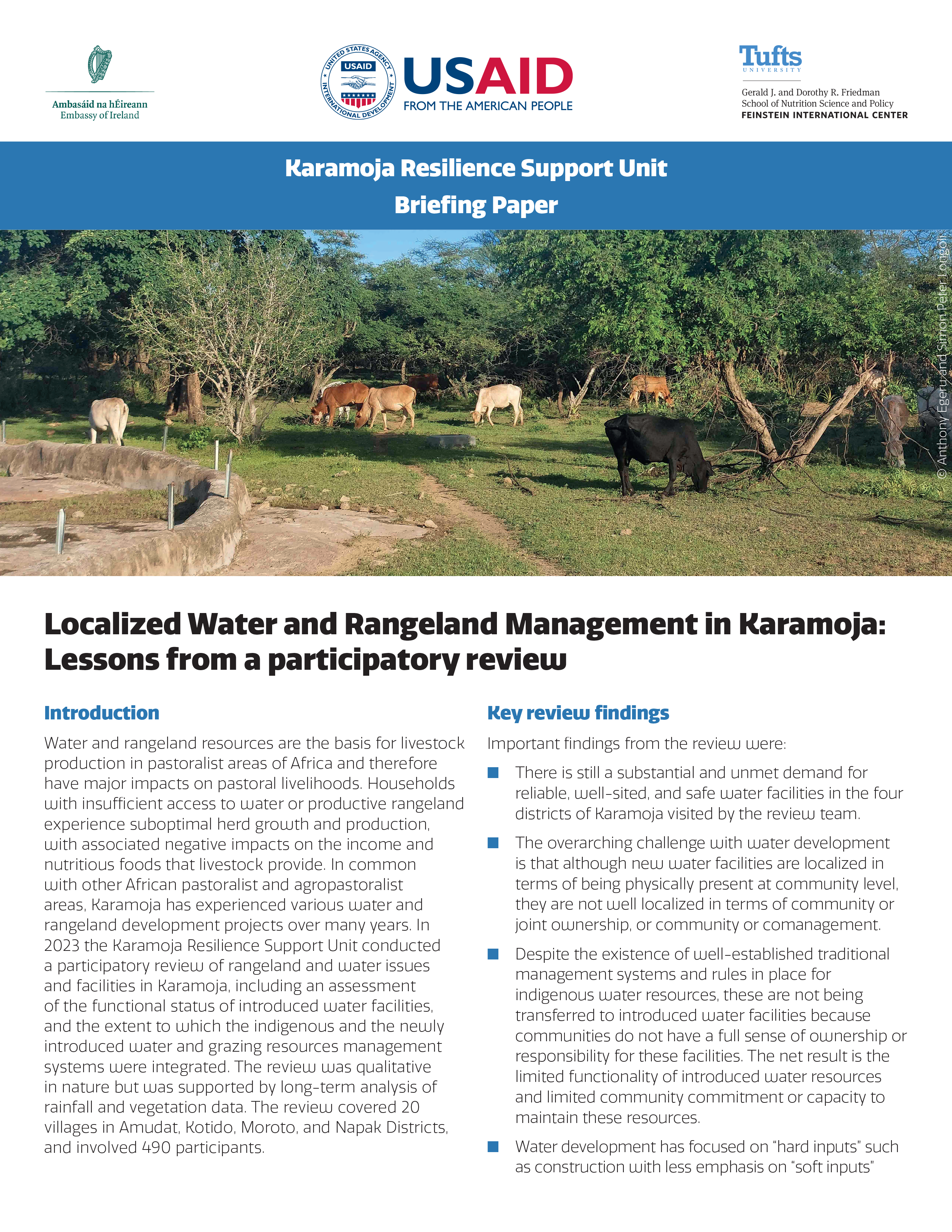
Localized Water and Rangeland Management in Karamoja: Lessons from a participatory review
Water and rangeland resources are the basis for livestock production in pastoralist areas of Africa and therefore have major impacts on pastoral livelihoods. Households with insufficient access to water or productive rangeland experience suboptimal herd growth and production, with associated negative impacts on the income and nutritious foods that livestock provide. In common with other African pastoralist and agropastoralist areas,
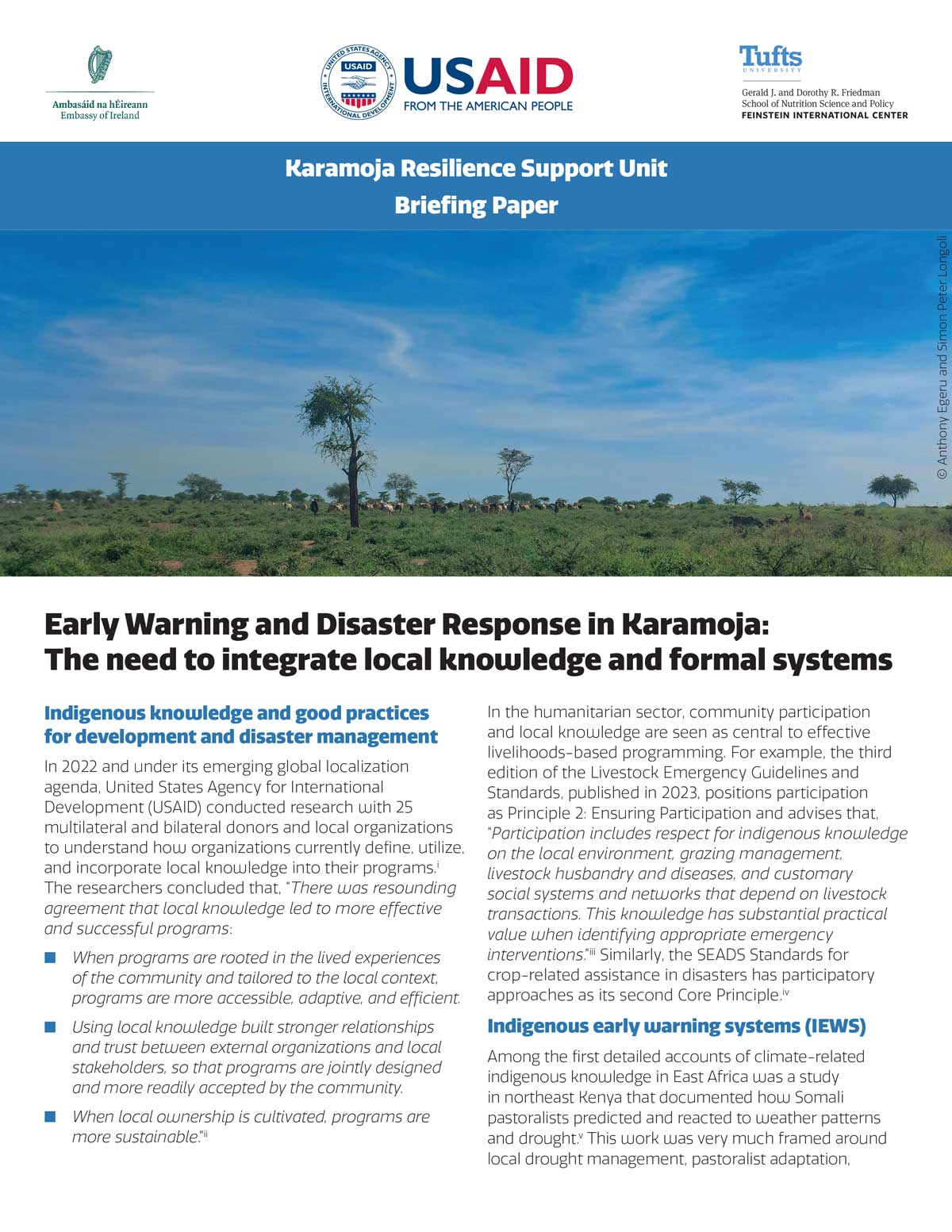
Early Warning and Disaster Response in Karamoja: The need to integrate local knowledge and formal systems
A genuine localized approach to early warning should shift the approach to more of a partnership and coacceptance of the strengths and weaknesses of indigenous and conventional systems.
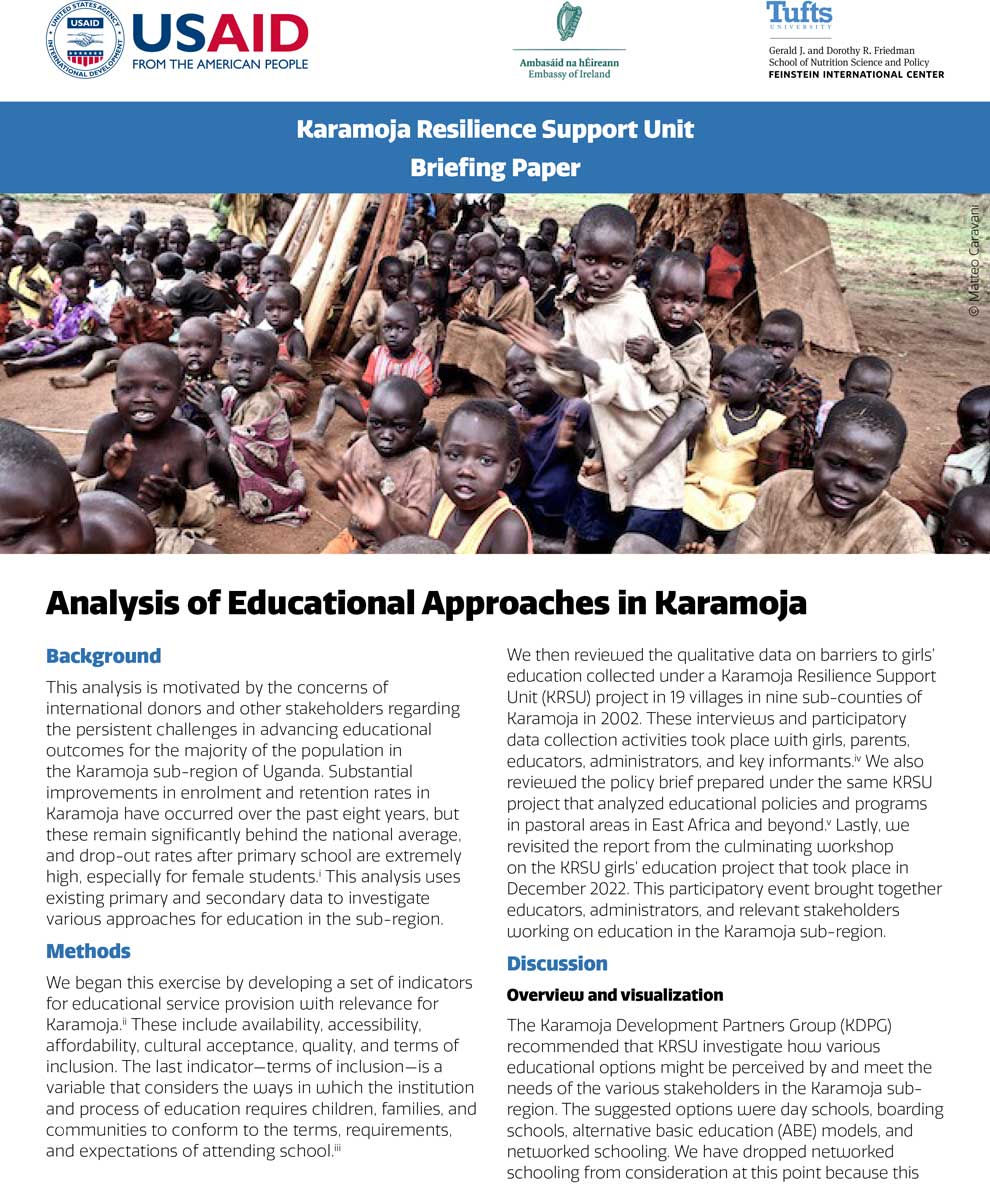
Analysis of Educational Approaches in Karamoja
This analysis is motivated by the concerns of international donors and other stakeholders regarding the persistent challenges in advancing educational outcomes for the majority of the population in the Karamoja sub-region of Uganda. Substantial improvements in enrolment and retention rates in Karamoja have occurred over the past eight years, but these remain significantly behind the national average, and drop-out rates after primary school are extremely high, especially for female students.i This analysis uses existing primary and secondary data to investigate various approaches for education in the sub-region.
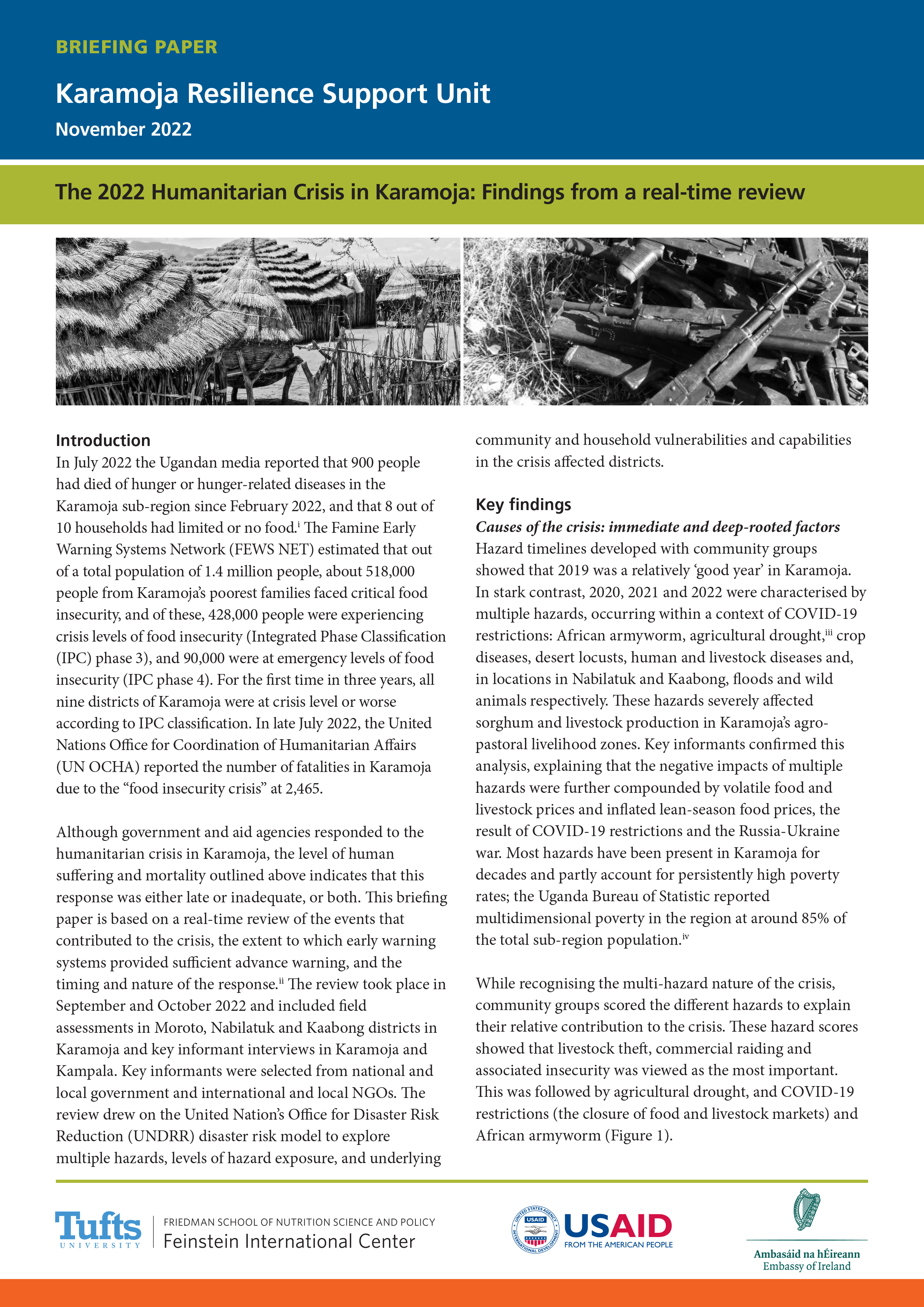
The 2022 Humanitarian Crisis in Karamoja: Findings from a real-time review
In July 2022 the Ugandan media reported that 900 people had died of hunger or hunger-related diseases in the Karamoja sub-region since February 2022, and that 8 out of 10 households had limited or no food.i
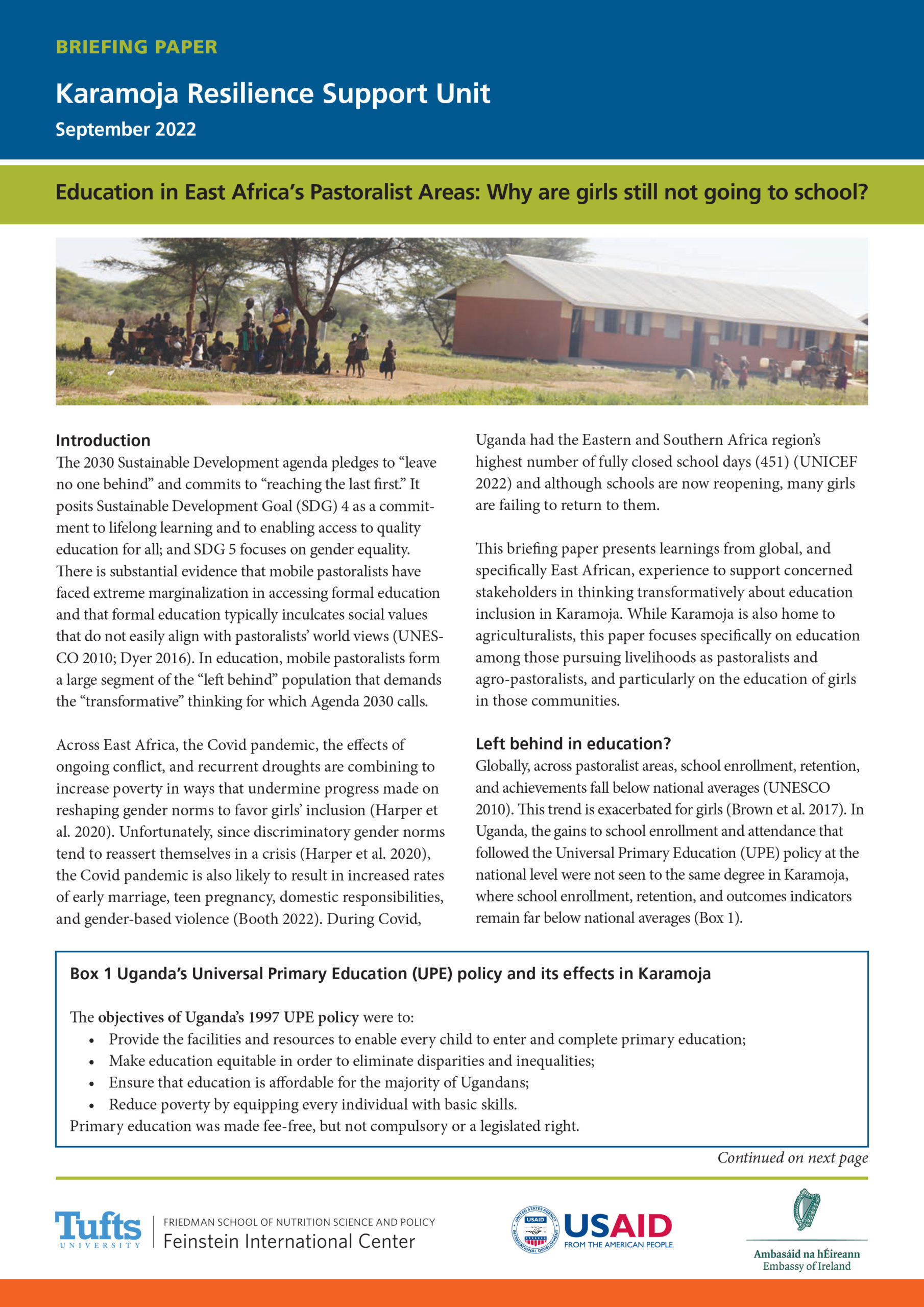
Education in East Africa’s Pastoralist Areas: Why are girls still not going to school?
This briefing paper presents learnings from global, and specifically East African, experience to support concerned stakeholders in thinking transformatively about education inclusion in Karamoja. While Karamoja is also home to agriculturalists, this paper focuses specifically on education among those pursuing livelihoods as pastoralists and agro-pastoralists, and particularly on the education of girls in those communities.

Livestock in Karamoja: improving markets and veterinary services
As Karamoja is a predominantly a pastoralist region, market trading of livestock is key to the region’s economy. However, a number of factors – ranging from policies and seasonality to price trends and market types – prevent livestock value chain actors from maximising their income and achieving livelihood security.

Improving practice: enhancing pastoralism policy
Although extensive research has been conducted into pastoralism, the sector – from its actors and systems to economic and environmental impacts – remains largely misunderstood. This is exacerbated by the fact that those living and working in pastoral communities often have trouble effectively expressing the processes they engage in and the benefits of pastoralism.
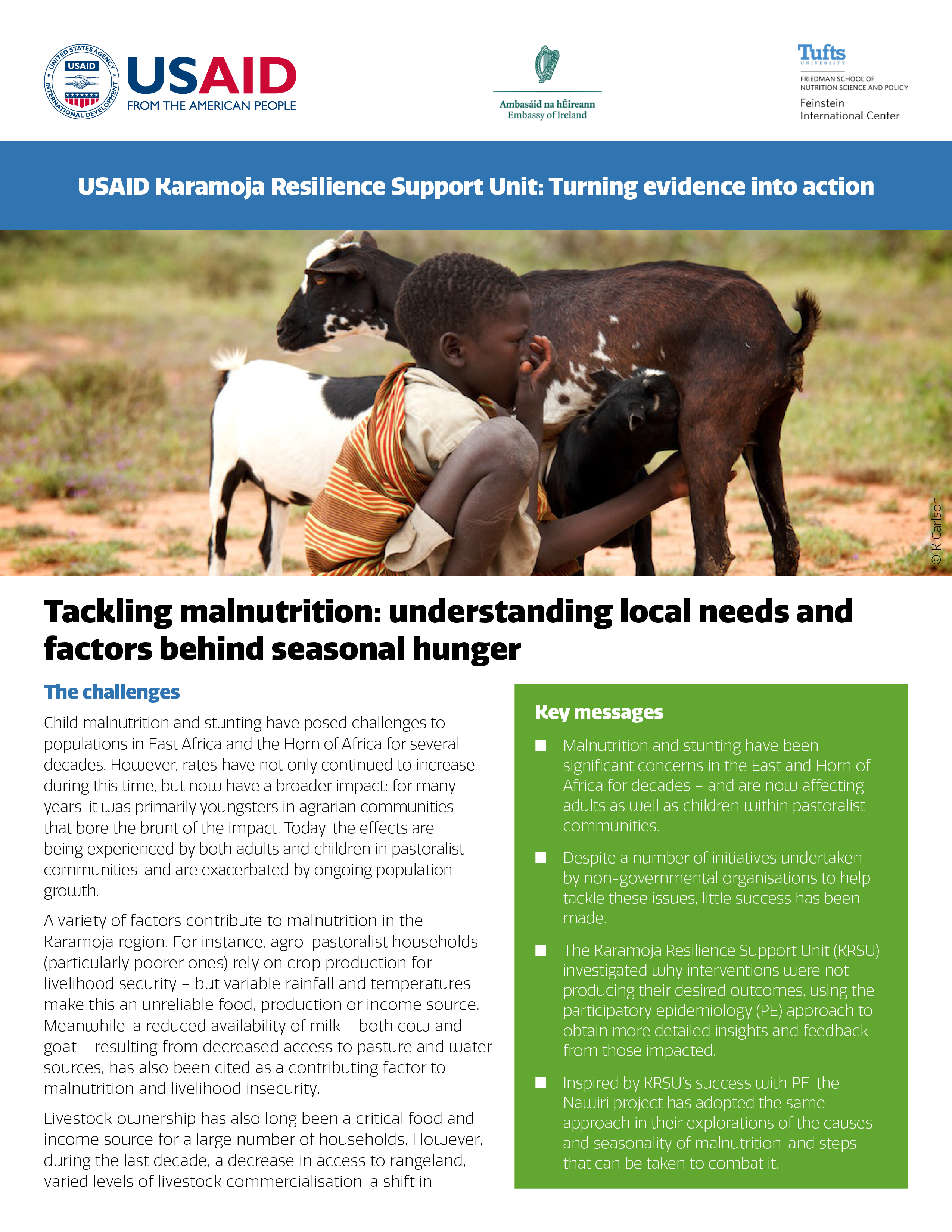
Tackling malnutrition: understanding local needs and factors behind seasonal hunger
Child malnutrition and stunting have posed challenges to populations in East Africa and the Horn of Africa for several decades. However, rates have not only continued to increase during this time, but now have a broader impact: for many years, it was primarily youngsters in agrarian communities that bore the brunt of the impact. Today, the effects are being experienced by both adults and children in pastoralist communities, and are exacerbated by ongoing population growth.
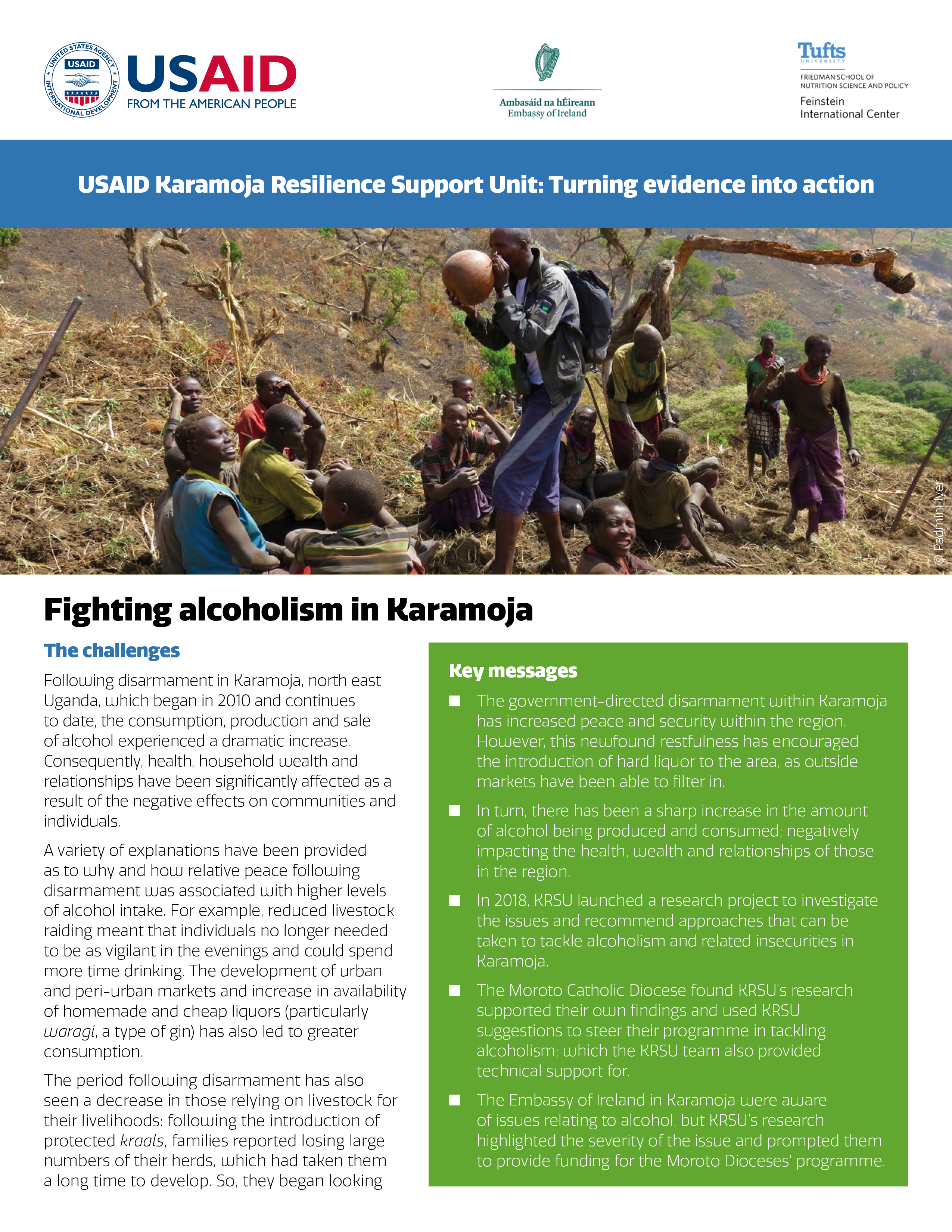
Fighting alcoholism in Karamoja
Following disarmament in Karamoja, north east Uganda, which began in 2010 and continues to date, the consumption, production and sale of alcohol experienced a dramatic increase. Consequently, health, household wealth and relationships have been significantly affected as a result of the negative effects on communities and individuals.
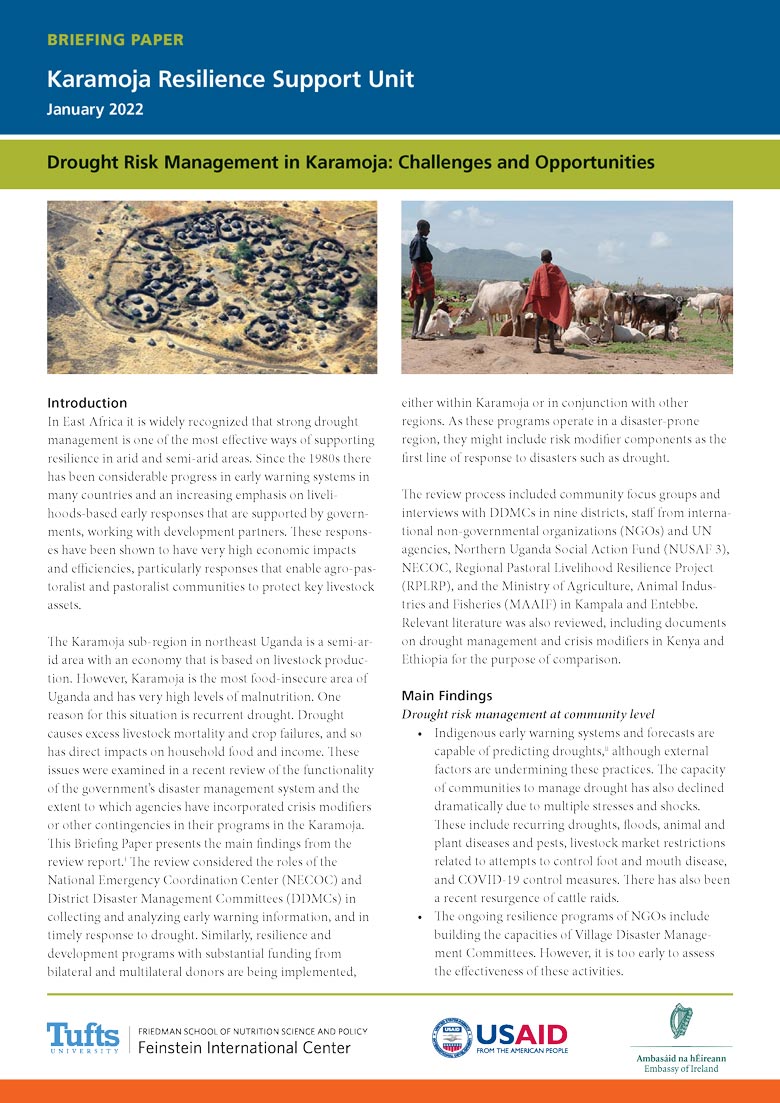
Drought Risk Management in Karamoja: Challenges and Opportunities
This Briefing Paper presents the main findings from the review report. The review considered the roles of the National Emergency Coordination Center (NECOC) and District Disaster Management Committees (DDMCs) in collecting and analyzing early warning information, and in timely response to drought.
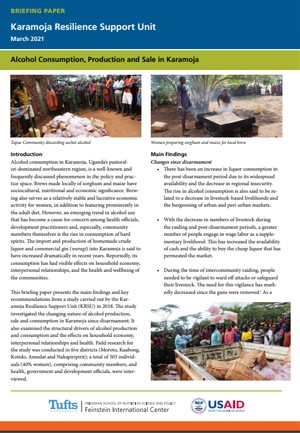
Alcohol Consumption, Production and Sale in Karamoja
Alcohol consumption in Karamoja, Uganda’s pastoralist-dominated northeastern region, is a well-known and frequently discussed phenomenon in the policy and practice space. Brews made locally of sorghum and maize have sociocultural, nutritional and economic significance. Brewing also serves as a relatively stable and lucrative economic activity for women, in addition to featuring prominently in the adult diet. However, an emerging trend in alcohol use that has become a cause for concern among health officials, development practitioners and, especially, community members themselves is the rise in consumption of hard spirits. The import and production of homemade crude liquor and commercial gin (waragi) into Karamoja is said to have increased dramatically in recent years. Reportedly, its consumption has had visible effects on household economy, interpersonal relationships, and the health and wellbeing of the communities.
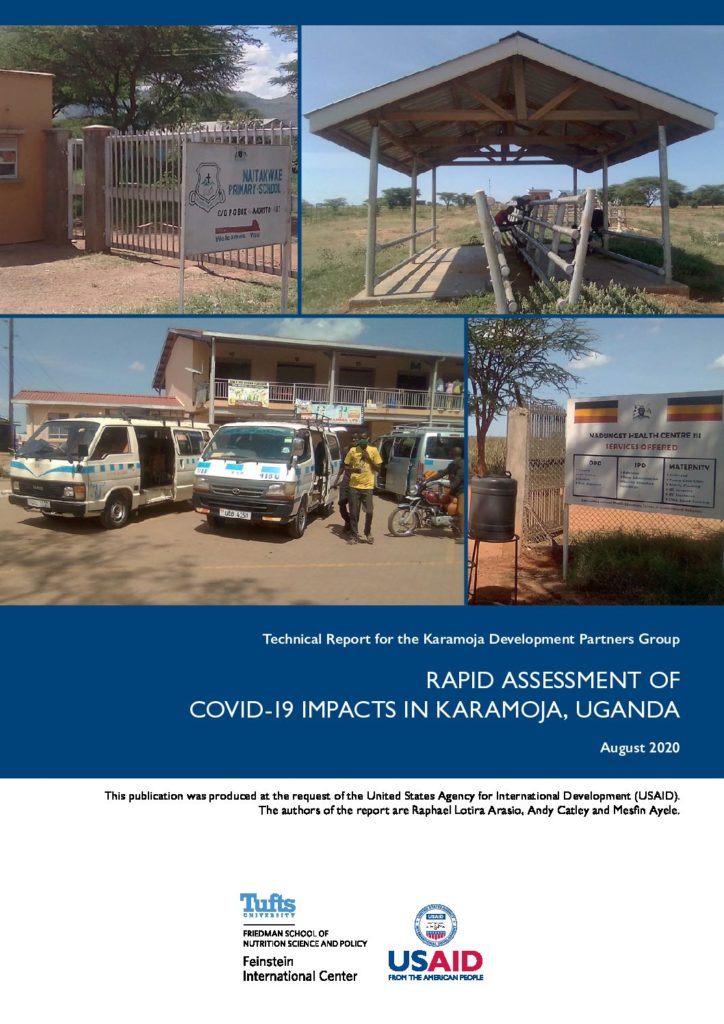
Rapid Assessment of COVID-19 impacts in Karamoja, Uganda
This technical report describes the impacts of coronavirus disease 2019 (COVID-19) restrictions in the Karamoja sub-region of Uganda, based on field assessments in Amudat, Moroto and Abim Districts. The COVID-19 prevention guidelines that prompted total lockdown measures included market closure and travel restrictions which in turn affected the essential economic activities of many households, especially the poor. These restrictions were implemented in March 2020 and were still in place in August 2020.
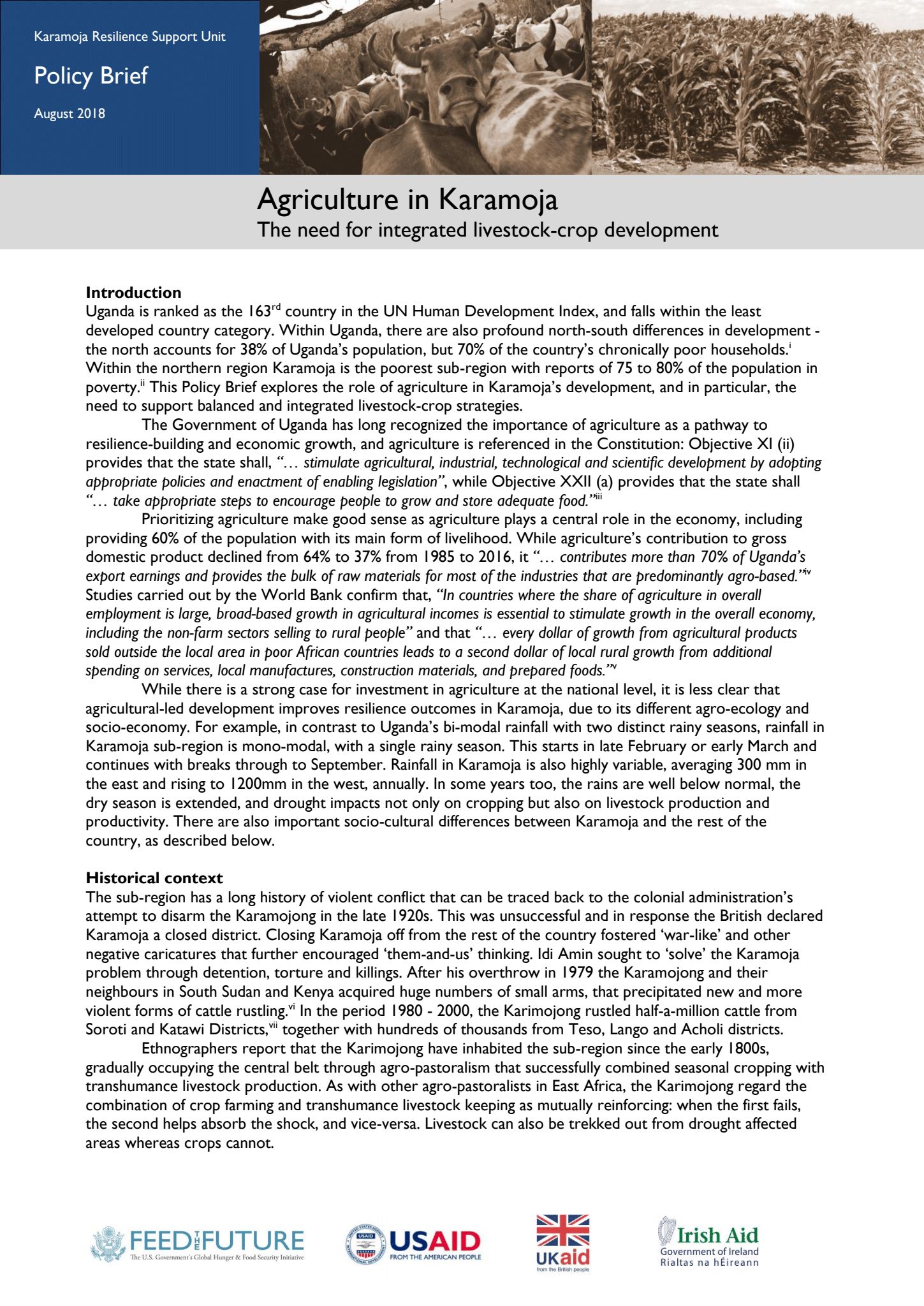
Agriculture in Karamoja-The need for integrated livestock-crop development
This Policy Brief explores the role of agriculture in Karamoja’s development, and in particular, the need to support balanced and integrated livestock-crop strategies.
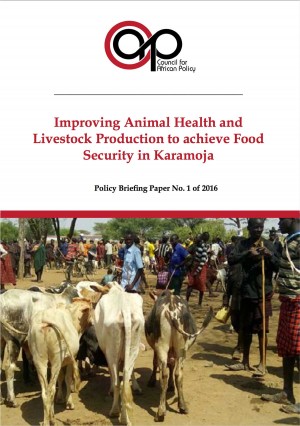
Improving Animal Health and Livestock Production to achieve Food Security in Karamoja
This policy brief is an opportunity to give a picture of the desirability of using livestock to improve livelihoods in the Karamoja region by taking advantage of existing policies or propose new ideas that will help exploit the potential of the livestock resource in Karamoja.
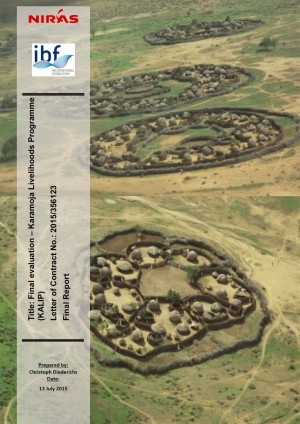
Final evaluation – Karamoja Livelihoods Programme
The Karamoja Livelihoods Programme (KALIP) was a 4-year programme (2010-2015) to protect and enhance incomes and food security of the agro-pastoral communities in Karamoja and support them in building up their productive asset base. The global objective of the final evaluation mission was: “to make an overall independent assessment about the past performance of KALIP, paying particularly attention to the impact of the actions against its objectives.” The overall objective of KALIP was: “to promote development as an incentive to peace in the region by supporting agro-pastoral production livelihood alternatives and income generation opportunities for the people of Karamoja.” The Supervising Authority for KALIP was the Office of the Prime Minister (OPM) and the donor was the European Union.
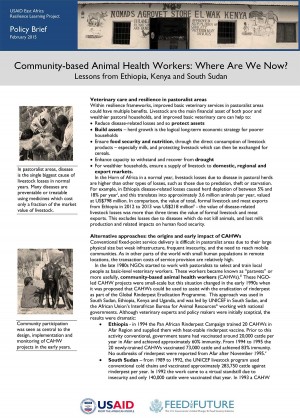
Community-based Animal Health Workers: Where Are We Now? Lessons from Ethiopia, Kenya, and South Sudan
A policy brief on evidence on community-based animal health workers in Ethiopia, Kenya, and South Sudan. At community-level, CAHWs are seen as valuable service providers and outperform other types of animal health care in most aspects of service provision. The main constraint is the supply of veterinary medicines in contexts of mixed policy support to veterinary privatization and limited government capacity to ensure the quality of imported or locally-manufactured medicines. In Kenya, these issues are compounded by a lack of policy or legislative support to CAHWs, combined with weak service provision by other providers in pastoralist areas
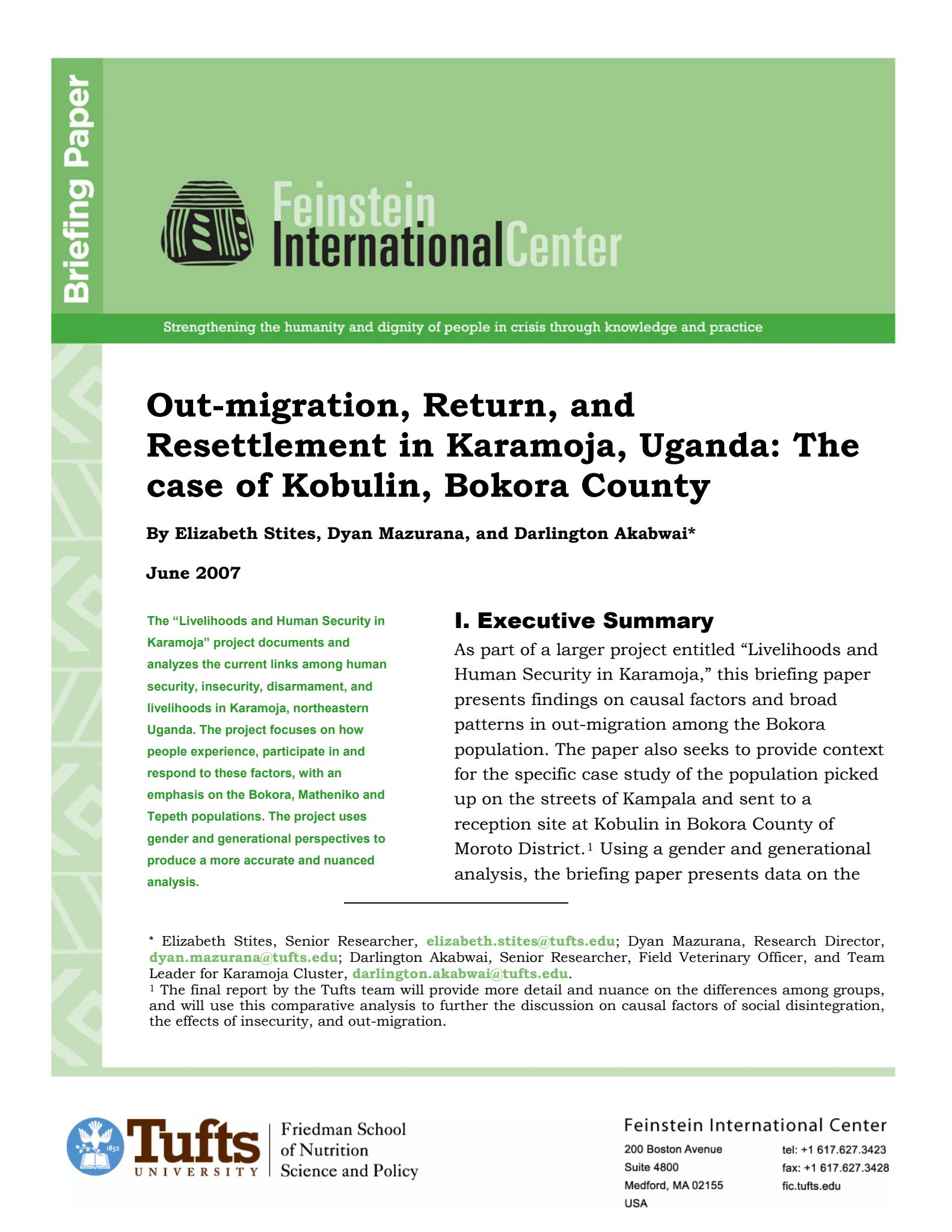
Out-migration, Return, and Resettlement in Karamoja, Uganda: The case of Kobulin, Bokora County
As part of a larger project entitled “Livelihoods and Human Security in Karamoja,” this briefing paper presents findings on causal factors and broad patterns in out-migration among the Bokora population.